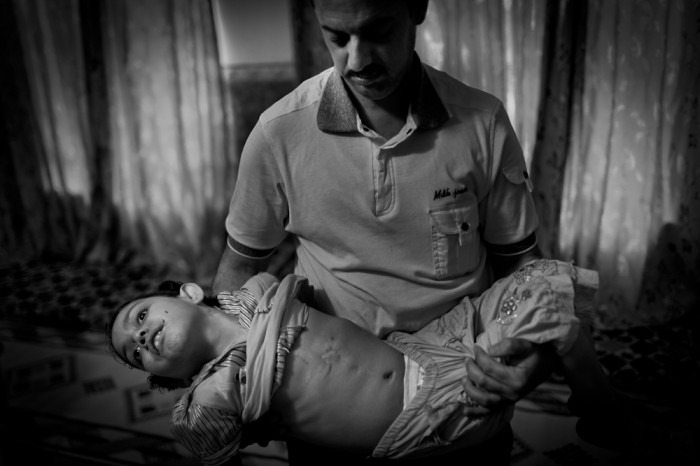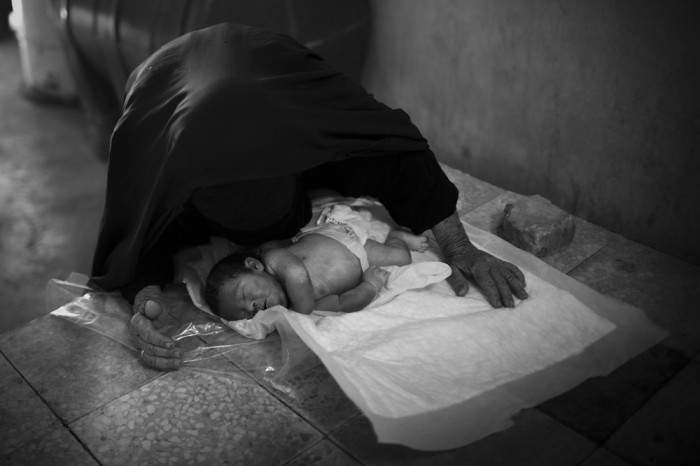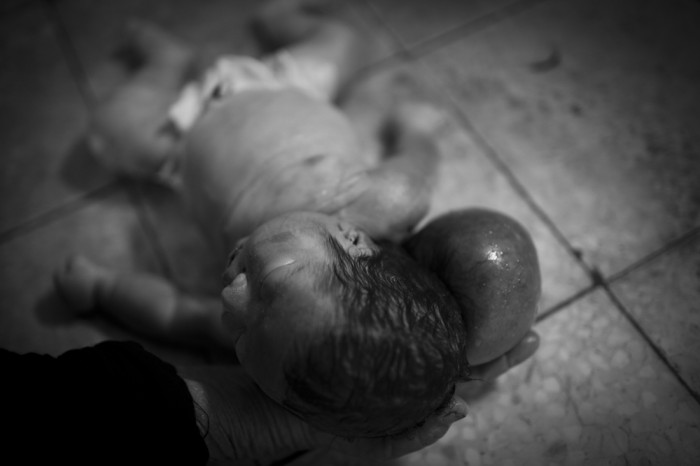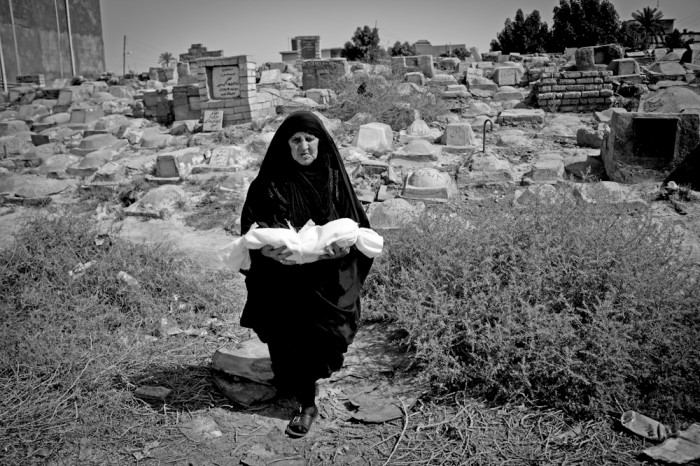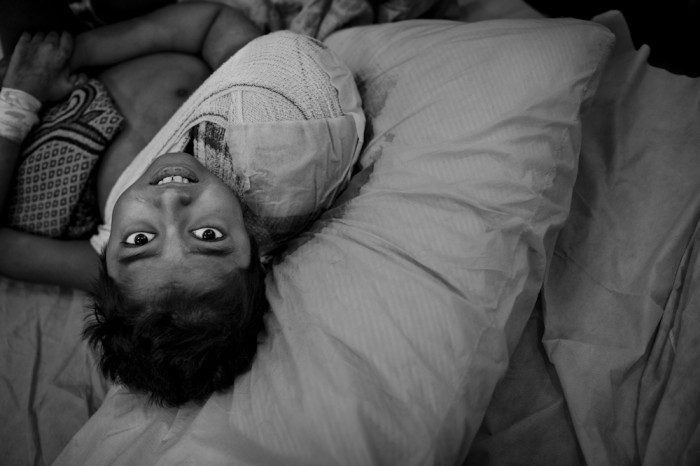This website uses cookies so that we can provide you with the best user experience possible. Cookie information is stored in your browser and performs functions such as recognising you when you return to our website and helping our team to understand which sections of the website you find most interesting and useful.
Depleted Uranium - The silent Genocide
-
PrizeGold in Press/War
-
PhotographerChristian Werner, Germany
Uranium ammunition – that means "DU", depleted uranium. It is uraniumwith a lower content of the fissile isotope U-235 than natural uranium. Most depleted uranium arises as a byproduct of the production of enriched uranium for use in nuclear reactors and in the manufacture of nuclear weapons.
Who remembers the Iraq war? The country was bombed in 2003. During the three weeks of bombardment, thousand tons of uranium ammunition dropped on cities like Basra and Fallujah and their inhabitants. Damaged but still radiating tanks are standing at the radial roads and testify to the bombardment during the gulf wars. Now, the wrecks and ruins are playgrounds for children, the population uses the contaminated scrap metal and collects souvenirs of the war. The war is over but many people come into contact with the radioactive material – and they contract leukemia.
In addition to Iraq, the uranium ammunition was used in the Indian-Pakistani frontier conflict, in Chechnya, during the Soviet intervention in Afghanistan, in the wars in Bosnia and Kosovo. Thousand tons of uranium ammunition have been used recently. Military uses include defensive armor plating and armor-piercing projectiles.
The use of DU in munitions is controversial because of questions about potential long-term health effects. It is weakly radioactive and remains so because of its long radioactive half-life. The aerosol or spallation frangible powder produced during impact and combustion of depleted uranium munitions can potentially contaminate wide areas around the impact sites, leading to possible inhalation by human beings. After the Gulf War, the cancer quota rises and a high number of cases of congenital abnormalities was detected. Every day, children are born, who have two heads, no eyes, a spina bifida, palatine clefts or missing arms and legs.
The disastrous effects are now visible, but reports and surveys about the consequences are still missing.
Christian Werner is a freelance photographer based in Nordstemmen, Germany.
As a teenager he developed his interest in photography while travelling to foreign countries.
Since 2009 he’s studying photojournalism at the University of Applied Sciences in Hannover.
His main interests are social diversity and global political issues. The areas of interest is mainly
the arabic world and culture.
Since 2012 Christian is represented by agency laif.
